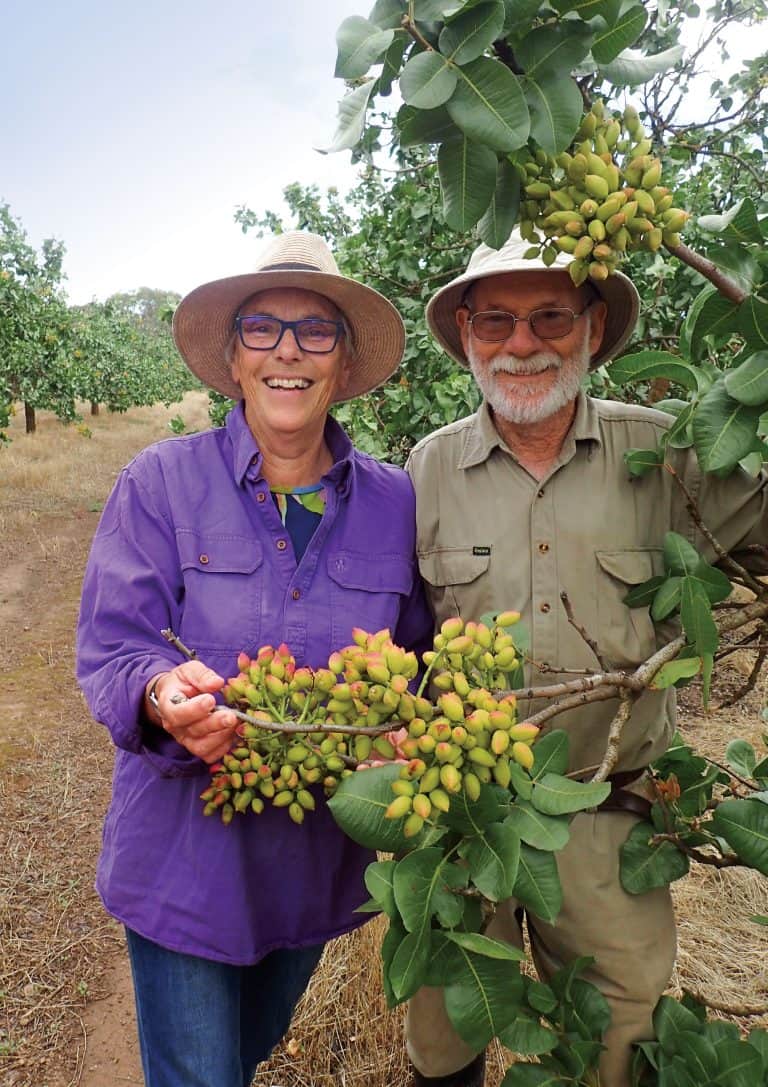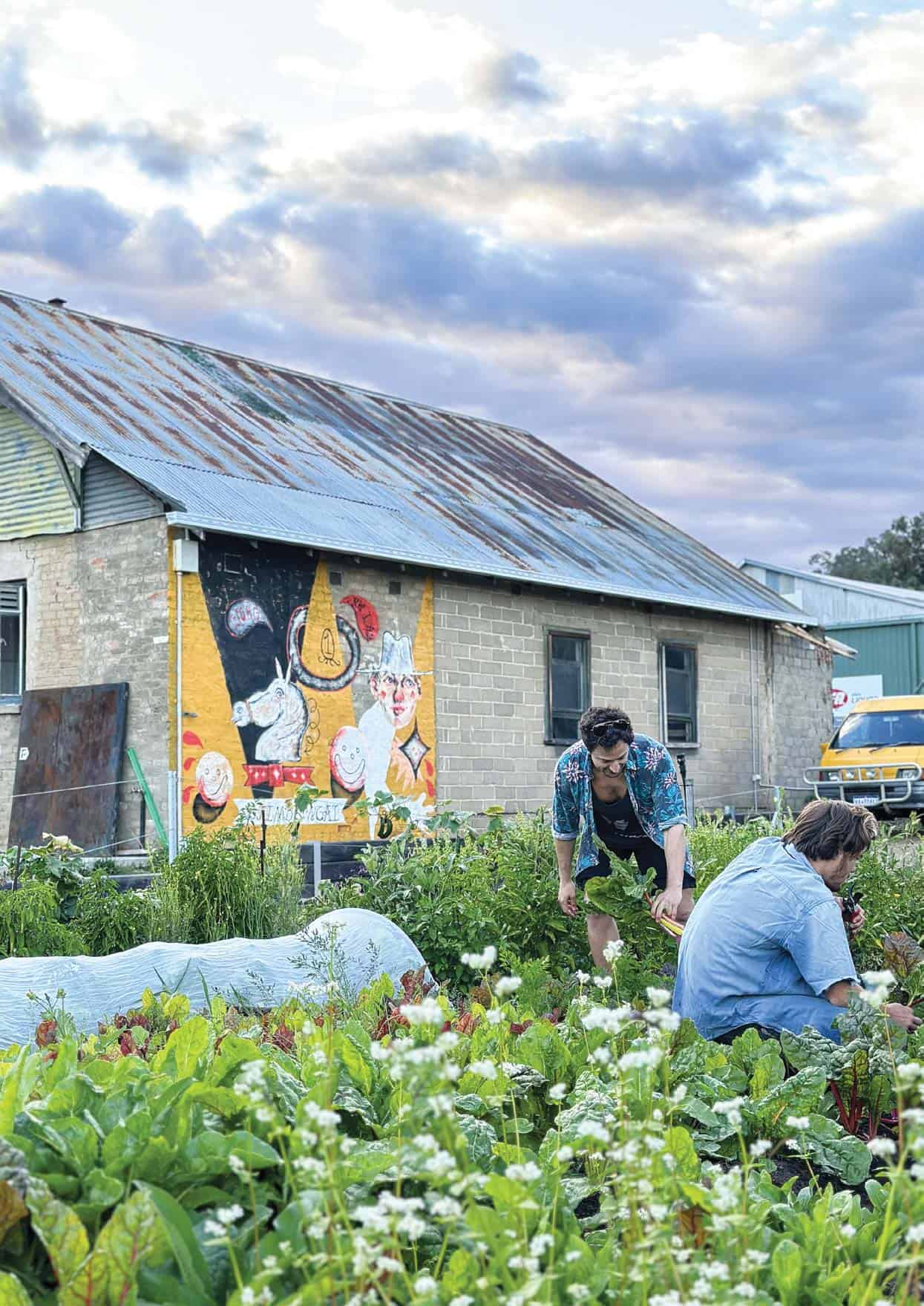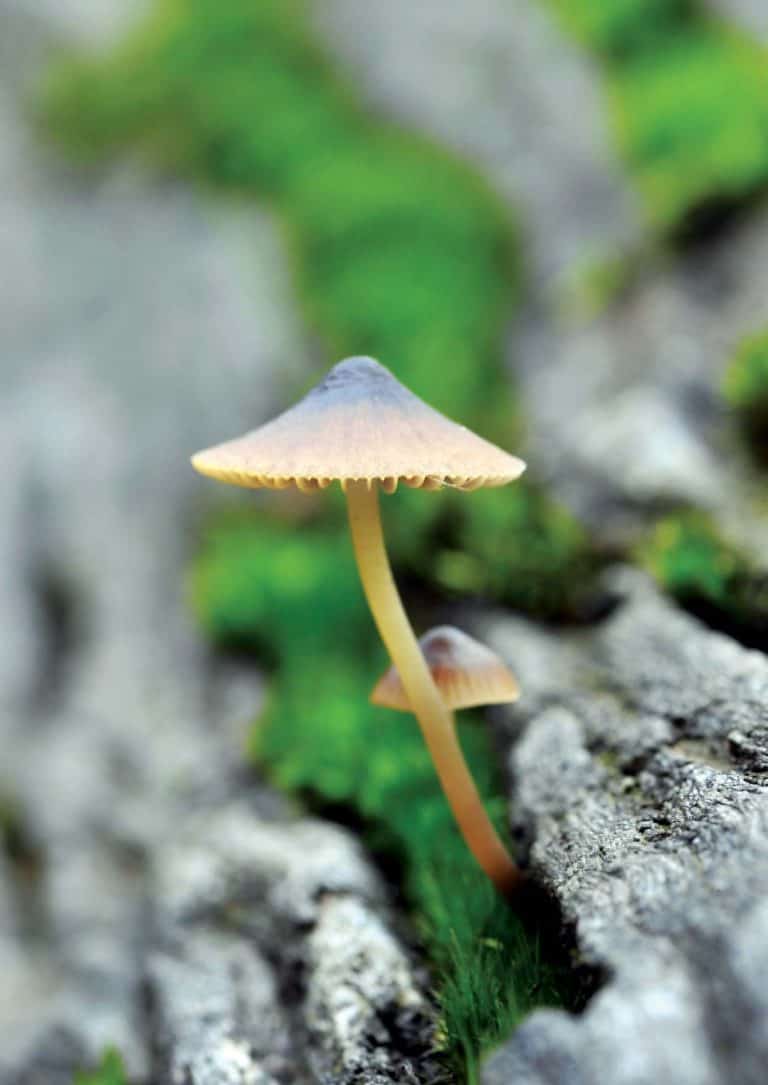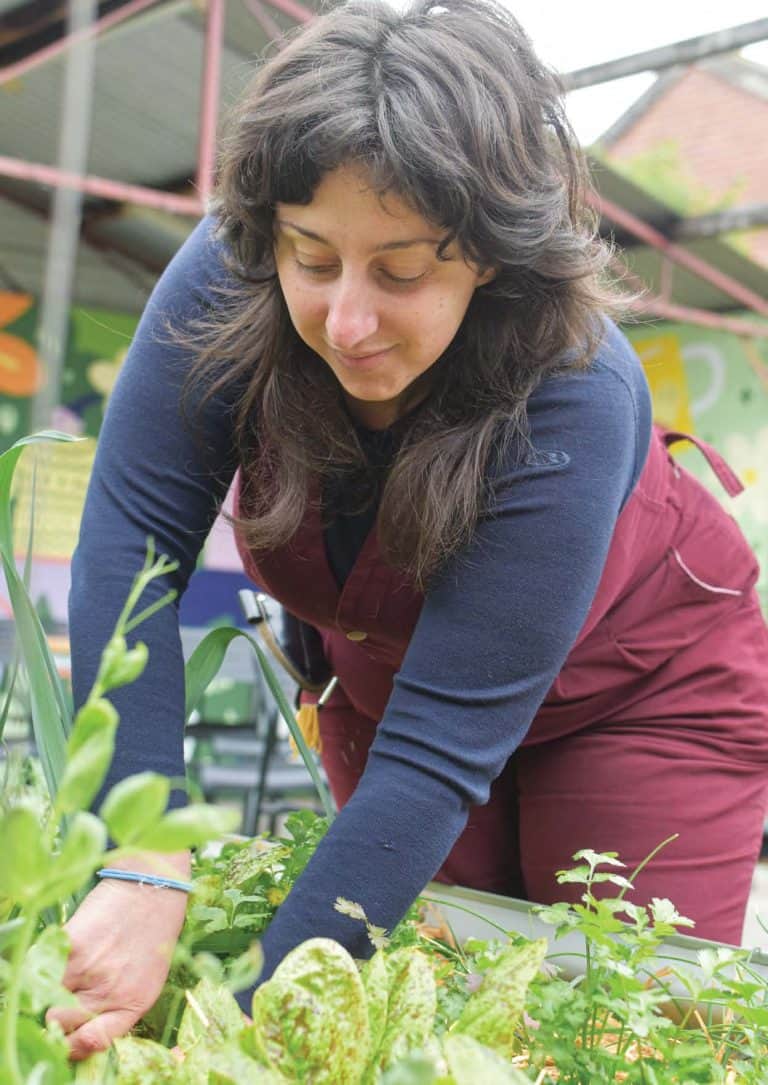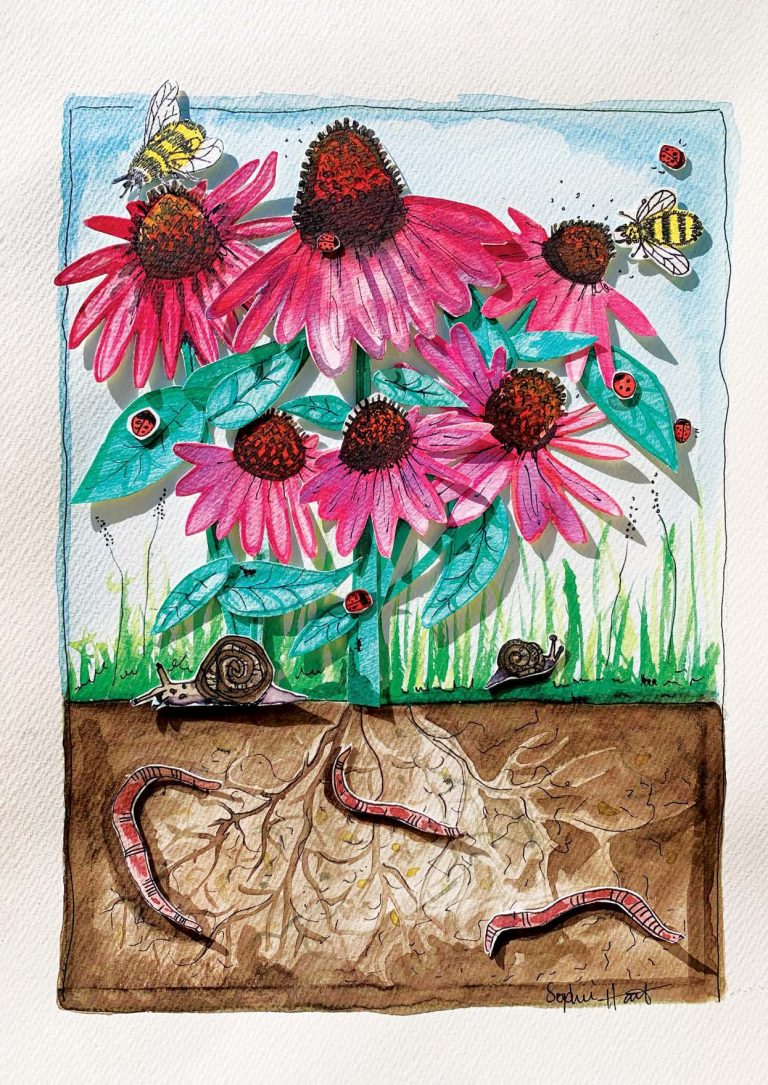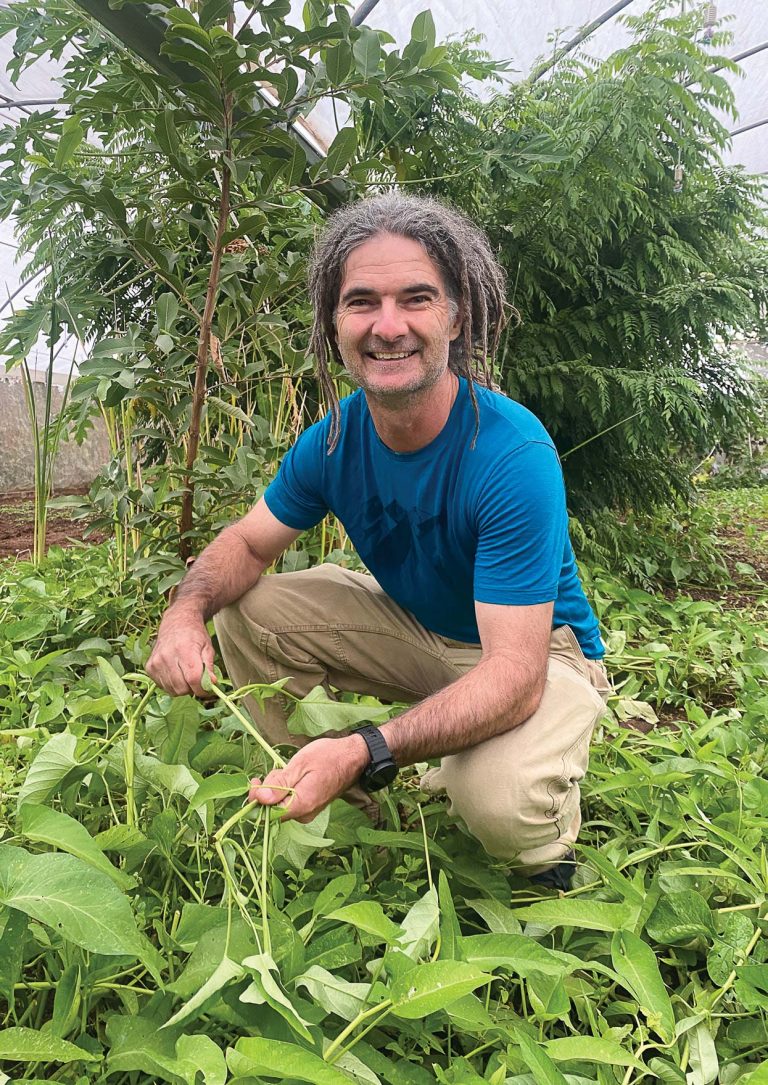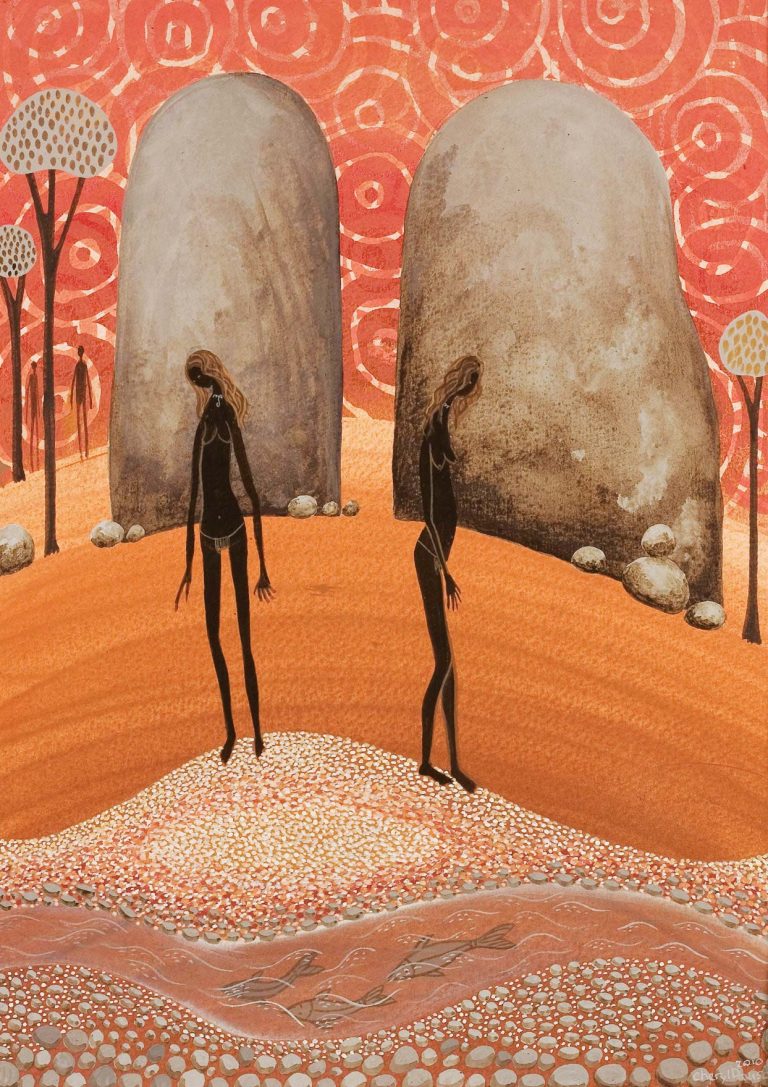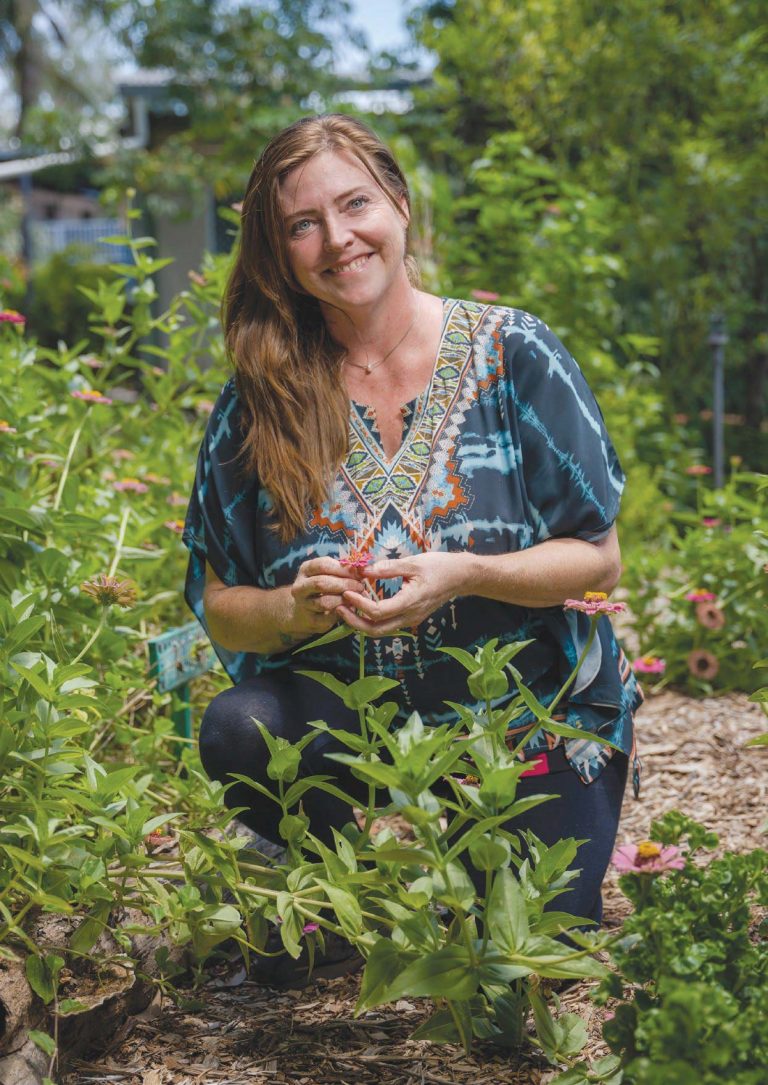HELP & HEALING – How accepting help allowed a family and their farm to heal and regenerate
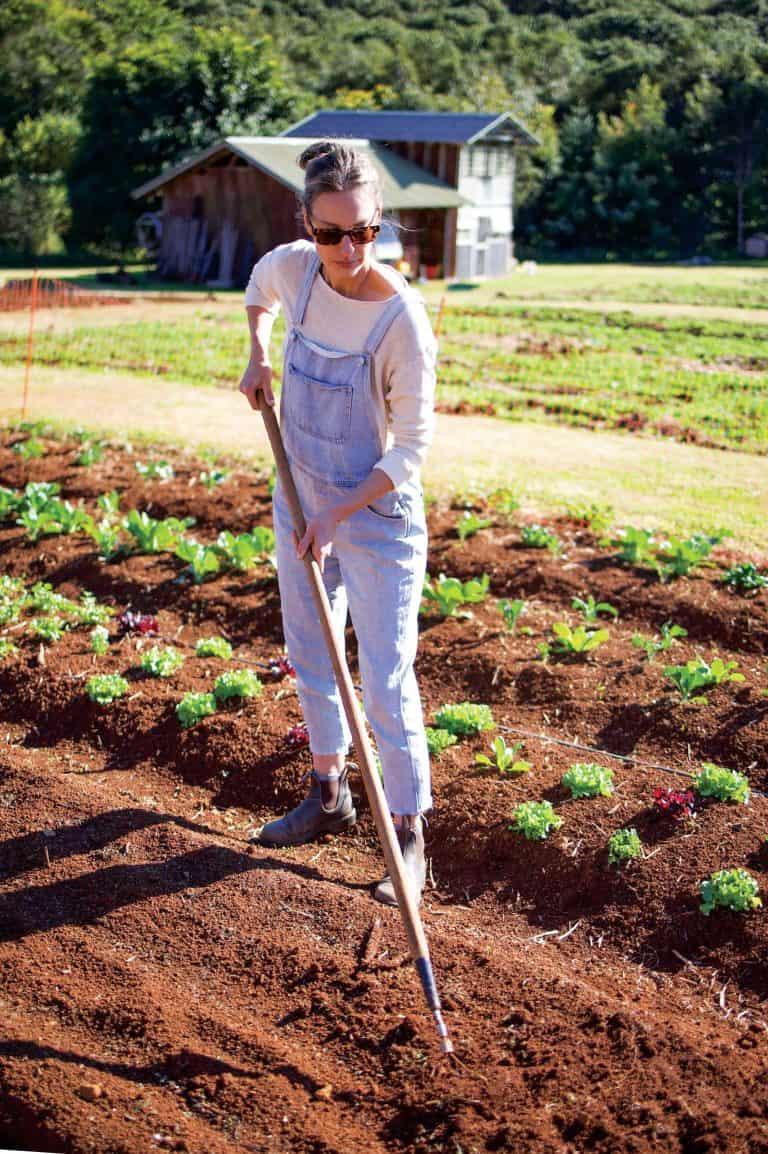
There’s a successful shared-farming arrangement playing out in Lismore, NSW that was born out of a pretty extreme set of circumstances. But it proves that if we can shed the societal expectation that all exchanges around gain need to be financial, the benefits can be life-changing.
In the northern rivers of New South Wales lies a thriving certified-organic 16-acre farm. On it Mark Bayley is continuing the work he and long-time partner Sara Tindley started almost 10 years ago when they acquired an old macadamia orchard in search of new beginnings.
With a shared commitment to regenerate and heal the land, the couple cleared the majority of the ageing 1200 nut trees to make way for native and endemic plants, earmarked and began work on rainforest regeneration areas, planted over 300 new fruit trees and moved a house from Lismore onto the property to make the place their home. Mark and Sara then turned their attentions to market gardening on a one- acre plot, and launched Singing Farmer Organics which they built and grew into viable and rewarding venture.

